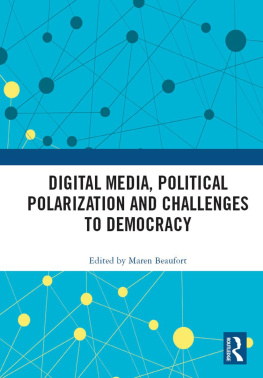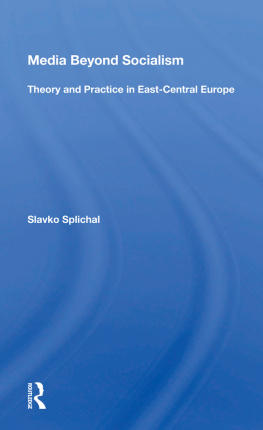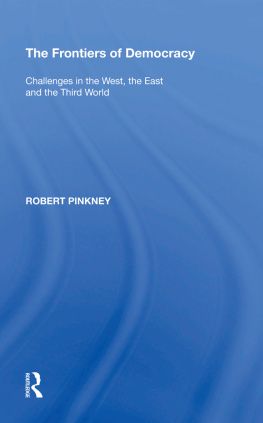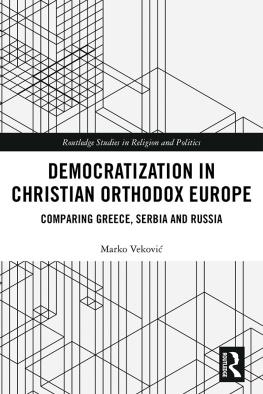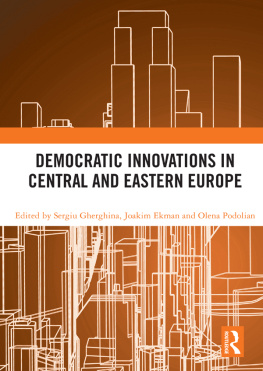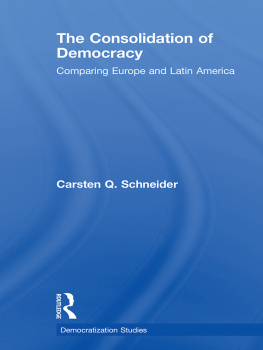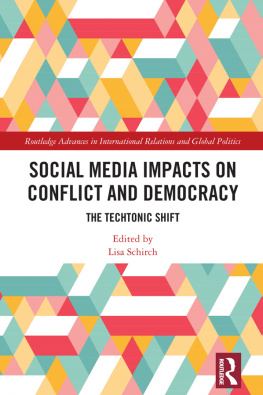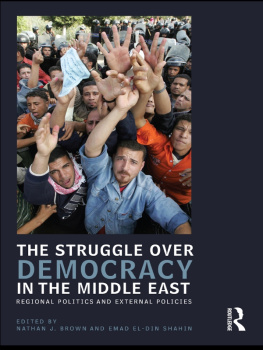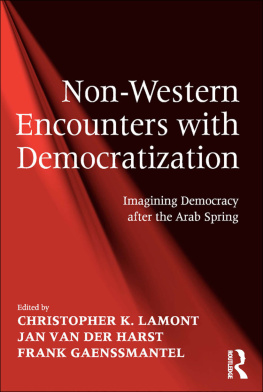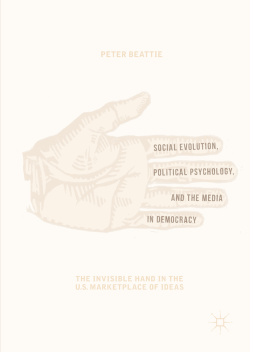Digital Media, Political Polarization and Challenges to Democracy
This book assesses the interplay between social media, political polarization, and civic engagement, focusing on countries with differing media environments, cultural specifics, and degrees of democratization.
Taken from a variety of disciplinary perspectives and based on innovative theoretical interventions and empirically grounded research, the contributions to this volume share a common aspiration to understand the democratic character of the new, and thus far largely unknown, media regime. Such a regime has the potential to both enhance and undermine democracy, in a time where the vulnerability of democracy is more obvious than ever before.
Featuring research from the USA, Western Europe, the Middle East, and East Asia, this book will be of interest to those studying recent political events in these regions, as well as to those scholars of media studies whose research focuses on the inter-relation of politics, communication and the media. This book was originally published as a special issue of Information, Communication & Society.
Maren Beaufort is a scientist in the Institute for Comparative Media and Communication Studies at the Austrian Academy of Sciences and the Alpen-Adria-University, Austria. Her research interests include social media, political participation, media effects, media quality, and media literacy. She participates in the European Commissions Media Pluralism Monitor.
Digital Media, Political Polarization and Challenges to Democracy
Edited by
Maren Beaufort
First published 2020
by Routledge
2 Park Square, Milton Park, Abingdon, Oxon, OX14 4RN
and by Routledge
52 Vanderbilt Avenue, New York, NY 10017
Routledge is an imprint of the Taylor & Francis Group, an informa business
Introduction, Chapters 12, 46 2020 Taylor & Francis
Chapter 3 2018 Judith Mller, Damian Trilling, Natali Helberger and Bram van Es. Originally published as Open Access.
With the exception of Chapter 3, no part of this book may be reprinted or reproduced or utilised in any form or by any electronic, mechanical, or other means, now known or hereafter invented, including photocopying and recording, or in any information storage or retrieval system, without permission in writing from the publishers. For details on the rights for Chapter 3, please see the chapters Open Access footnote.
Trademark notice: Product or corporate names may be trademarks or registered trademarks, and are used only for identification and explanation without intent to infringe.
British Library Cataloguing in Publication Data
A catalogue record for this book is available from the British Library
ISBN13: 978-0-367-19889-3
Typeset in Minion
by Newgen Publishing UK
Publishers Note
The publisher accepts responsibility for any inconsistencies that may have arisen during the conversion of this book from journal articles to book chapters, namely the inclusion of journal terminology.
Disclaimer
Every effort has been made to contact copyright holders for their permission to reprint material in this book. The publishers would be grateful to hear from any copyright holder who is not here acknowledged and will undertake to rectify any errors or omissions in future editions of this book.
Contents
Maren Beaufort
Marco Bastos and Dan Mercea
Michael A. Beam, Myiah J. Hutchens and Jay D. Hmielowski
Judith Mller, Damian Trilling, Natali Helberger and Bram van Es
Moran Yarchi and Tal Samuel-Azran
Yuan Hsiao and Yunkang Yang
Bora Ataman and Bar oban
The chapters in this book were originally published in the journal Information, Communication & Society, volume 21, issue 7 (July 2018). When citing this material, please use the original page numbering for each article, as follows:
Introduction
Digital media, political polarization and challenges to democracy
Maren Beaufort
Information, Communication & Society, volume 21, issue 7 (July 2018) pp. 915920
Chapter 1
Parametrizing Brexit: mapping Twitter political space to parliamentary constituencies
Marco Bastos and Dan Mercea
Information, Communication & Society, volume 21, issue 7 (July 2018) pp. 921939
Chapter 2
Facebook news and (de)polarization: reinforcing spirals in the 2016 US election
Michael A. Beam, Myiah J. Hutchens and Jay D. Hmielowski
Information, Communication & Society, volume 21, issue 7 (July 2018) pp. 940958
Chapter 3
Do not blame it on the algorithm: an empirical assessment of multiple recommender systems and their impact on content diversity
Judith Mller, Damian Trilling, Natali Helberger and Bram van Es
Information, Communication & Society, volume 21, issue 7 (July 2018) pp. 959977
Chapter 4
Women politicians are more engaging: male versus female politicians ability to generate users engagement on social media during an election campaign
Moran Yarchi and Tal Samuel-Azran
Information, Communication & Society, volume 21, issue 7 (July 2018) pp. 978995
Chapter 5
Commitment in the cloud? Social media participation in the sunflower movement
Yuan Hsiao and Yunkang Yang
Information, Communication & Society, volume 21, issue 7 (July 2018) pp. 9961013
Chapter 6
Counter-surveillance and alternative new media in Turkey
Bora Ataman and Bar oban
Information, Communication & Society, volume 21, issue 7 (July 2018) pp. 10141029
For any permission-related enquiries please visit:
www.tandfonline.com/page/help/permissions
Bora Ataman is an Associate Professor of Communication Sciences at Arts & Sciences Faculty at Dou University, Turkey. He is currently studying topics such as activist citizen journalism, media activism and counter-surveillance, and journalism safety.
Marco Bastos is a Lecturer in Media and Communication in the Department of Sociology at City, University of London, UK, and an affiliate of Duke Universitys Network Analysis Center, USA. His work addresses sociological aspects of digital media with a substantive interest in the cross-effects between online and offline social networks.
Michael A. Beam is an Assistant Professor in the School of Communication Studies at Kent State University, USA. His research interests include political communication and new communication technologies.
Maren Beaufort is a scientist in the Institute for Comparative Media and Communication Studies at the Austrian Academy of Sciences and the Alpen-Adria-University, Austria. Her research interests include social media, political participation, media effects, media quality, and media literacy. She participates in the European Commissions Media Pluralism Monitor.
Bar oban is Professor of Communication Sciences at Dou University, Turkey. His research interests are alternative media, new social movements, and surveillance studies.
Natali Helberger is Professor in Information Law at the Institute for Information Law at the University of Amsterdam, the Netherlands. She specialises in the regulation of converging information and communications markets.

